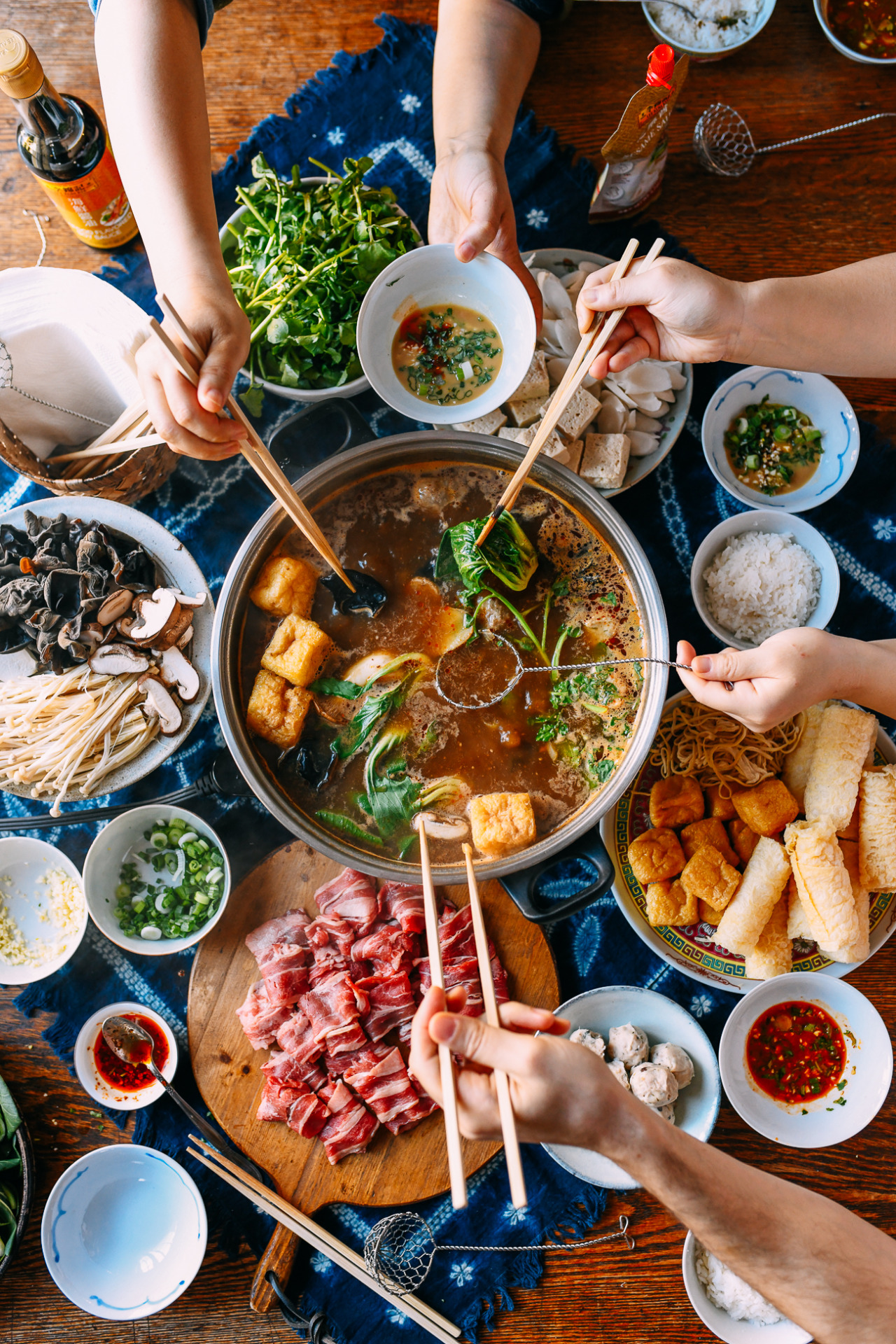Hotpot Multiculturalism: A Vision of a Shared America
“America is a melting pot.” One of the most common cliches about our nation’s immigrant history and present diversity – and perhaps one of the least accurate.

A romanticized depiction of the American “melting pot” for the 1908 play of the same name by Israel Zangwill. (PC: Wikimedia Commons).
As someone who immigrated from China to America when I was 11 years old, “America is a melting pot” was a saying I lived by every day. Integrating into elementary school was hard for an 11-year-old who didn’t speak the same language as everyone else. Going by my favored communication method from those early years in America, I’m surprised I never considered a career as a mime.
To make up for it, I tried falling back on a language I did know, performing my Mandarin for my band of wide-eyed classmates. Everyone seemed to enjoy my best attempts at translating their English names into Mandarin, but more often than not, I could only guess. I’ve always felt a sting of regret for mishearing ‘Robert’ as ‘rubber,’ then mistranslating ‘rubber’ as ‘eraser’ (橡皮 Xiàngpí) based on British English. The unlucky Robert then went around mispronouncing his mistranslated name as Cinnamon Bark (香皮 Xiānɡ Pí) for the entire school year.
As funny as these gimmicks were, each one of these cultural exchanges, each attempt to ‘please’ was part of an endless battle to belong. I knew there were unspoken lines, so I simply took cues from the people around me. When they laughed, it was a cue to laugh. When they looked flustered, it was a cue to appear concerned. I was a mirror, a reflection of my surroundings with little of my own to share. Everything I had learned from my upbringing in the People’s Republic of China, I packed up and dumped into the melting pot behind the mirror. Chinese proverbs and poems I had memorized, memories of home, proficiency in Mandarin, everything I didn’t use in my American school, dissolved in the melting pot like overcooked potatoes.
In recent years, the melting pot analogy has faced its fair share of criticisms for not embracing diversity. Its’ ‘healthier’ alternative, the salad analogy, appears more inclusive, but in fact supports the assumption that people of different cultural backgrounds coexist but share little in common, held together only by a salad dressing of shared ‘American’ values.
As a 1.5th generation Chinese American, I would prefer the hotpot way of bringing people together. Hotpot in Chinese culture is as much a social practice as it is a dish. It is rarely eaten alone. Especially on cold days, the hot steam from the pot provokes a sense of comfort and closeness among family and friends.
Hotpot starts with a pre-prepared soup base into which ingredients, including everything from meat, vegetables, and root vegetables to tofu, fish, and mushrooms of all different kinds, are added. Their variety also means balancing different cooking speeds and flavors. Some foods absorb more flavors, while others engage with the broth in creative ways.

A typical hotpot spread and broth, including different sliced meats, tofus, noodles, mushrooms, vegetables, and mixed sauces. (PC: the Woks of Life).
Take sponge tofu vs. sliced meats, for example. Sponge tofu maintains its shape and texture and soaks up the broth for a juicy bite. Sliced meats cook quickly, absorb tons of flavor, and leave a legacy of taste for the rest of the flavors to come. One way or another, the ingredients are all immersed in the hotpot together, changing themselves, changing each other, and the broth they leave behind.
Culture is dynamic and ever-changing. Unlike what happens in the melting pot, no one will melt away into nothingness. Unlike what happens in a salad bowl, we are all connected by more than a drizzling of vaguely defined shared values. The image of a cooking hotpot allows us to see our entanglement with one another in its totality, the connections between us that transcend time and space. Hotpot encourages us to see every ingredient as capable of change and capable of causing change. It values alternative embodied experiences of immigration that don’t strictly follow the worship of the American Dream. Some of us will assimilate and take up the broth’s accumulated flavor in all its glory. Others of us will hold onto our shape and texture in new environments. Regardless, all of us will leave our taste that will last long after we are gone.
Whether you identify as an immigrant or not, please look through your fondest memories and consider all the people with whom you have crossed paths. Consider how, whether the changes have been big or small, temporary or permanent, we have all changed one another.
If I could sit at a table with my 11-year-old self, I would encourage him to take his belongings out of the melting pot behind him to share a meal of hotpot with me.
Written by CHSA’s Spring 2021 We Are Bruce Lee Research Intern, Shou Zhang. Shou is a recent Master’s graduate from Wageningen University now residing in Little Tokyo’s heart in Los Angeles. Shou is working towards furthering his education to contribute to its body of knowledge and practice in museum/tourism spaces interested in heritage, memory, places, and critical theory.
hydralisk98 liked this
inused liked this
seinundshiguang liked this
 prayandcoolyouranxiety reblogged this from chsamuseum
prayandcoolyouranxiety reblogged this from chsamuseum veryrunawaylady liked this
foreverfreo reblogged this from chsamuseum
foreverfreo liked this
kimmchi-nyc liked this
johannes-factotum liked this
johannes-factotum reblogged this from chsamuseum
chsamuseum posted this
